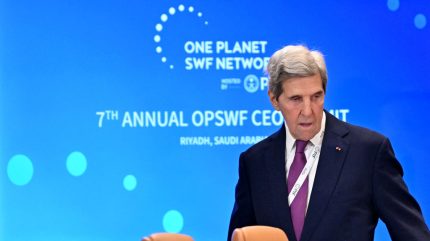
SWFs managed $13.2trn in assets in 2024, making them attractive targets for IPAs as they try to draw in FDI. In an era of rising geopolitical conflict, countries may also want to forge strong economic ties to create alliances and secure the development of certain sectors. Where is the flow of capital from SWFs headed next?
Identifying trends in SWF investments: report
SWF investments grew substantially in 2024, according to an annual report by IE University. From January 2023 to June 2024, there were almost 50 more deals (473) compared with the 2023 report and transaction value nearly doubled to $211bn. The sectors that attracted the most projects were finance, tech, energy, industrial/automotive and healthcare.

Discover B2B Marketing That Performs
Combine business intelligence and editorial excellence to reach engaged professionals across 36 leading media platforms.
The study identified four megatrends in SWF investments that they expect to continue into 2025. These were climate and sustainability in emerging markets, domestic and international infrastructure projects, AI, and water management and food technology.
The sustainable finance market increased 20% in value from 2022 to 2023, reaching $7trn. The report claimed funds have become more adamant about meeting environmental benchmarks like the requirements of the International Sustainability Standards Board. It highlighted that SFWs from Singapore and the Middle East have invested more in developing nations since 2015, except for a drop in 2022, which they attributed to short-term factors including Covid-19. Population growth and a nascent middle class will still be drivers of long-term market strength in middle-income countries. India, for example, has received a lot of interest from SWFs, garnering 15% of SWF deals between January 2023 and June 2024.
Infrastructure projects, on the other hand, have always been attractive to SWFs because of their predictability. However, the growth of decarbonisation, urban development and digital infrastructure has been reshaping this investment environment. As the cost of sustainable technologies like solar power decreases, SWFs have increasingly aligned their portfolios to consider the impacts of climate change. According to a 2024 survey, 68% of SWFs factored in the effects of climate change when considering long-term investments. Urban development investments are also on the rise but tend to be more domestic. Saudi Arabia’s Public Investment Fund (PIF), for example, is focusing its resources on projects like the mega-development NEOM.
As Covid-19 and the rise of AI propelled services into the digital realm, there has been a significant increase in the demand for the infrastructure to support this growth. Major investments from SWFs have been made in this space. The Government of Singapore Investment Corporation (GIC) launched a partnership with Canada Pension Plan Investment Board and US internet company Equinix to invest more than $15bn in developing data centres in the US. They would be providing services to giants like Google Cloud, Amazon Web Services and Microsoft Azure.

US Tariffs are shifting - will you react or anticipate?
Don’t let policy changes catch you off guard. Stay proactive with real-time data and expert analysis.
By GlobalDataThe rise of AI is also influencing investment patterns for SWFs. AI is already being integrated into multiple sectors including healthcare, finance and travel, which has moved SWFs to make strategic investments in the technology’s supply chain. For example, Qatar Investment Authority (QIA) and GIC contributed to AI company Databricks’ Series 1 funding round, which reached $500m. Singapore’s other SWF, Temasek, is also investing in US tech giants like Microsoft, Apple, Meta and NVIDIA.
Lastly, the report identifies water and food tech as the other major investment trend for SWFs. While water scarcity (for drinking and sanitation purposes) is already a reality for billions of people, climate change is set to exacerbate the problem. SWFs have moved to address this by investing in projects that strengthen resource management and sustainability.
Saudi’s PIF is the majority owner of ACWA Power, a power generation company focusing on desalination plants, which functions in 13 countries in the Middle East, Africa and Asia. There have also been multiple investments from Middle Eastern SWFs in water management companies in the UK. For example, QIA invested in Severn Trent and Abu Dhabi Investment Authority invested in Thames Water.
SWFs have also shown interest in food technology investments. IE University’s SWF report from 2020 highlighted that between July 2019 and July 2020, SWFs invested $1.16bn in food tech ventures.





